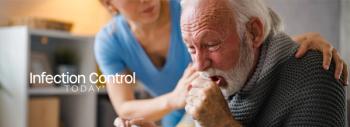
Amazon Accused of Price Gouging Hand Sanitizers Amid COVID-19 Spread
A case of 12 one-ounce bottles was being sold by one lister for $3,892.84, which equals just over $324 per ounce.
Even though the US Food and Drug Administration this year
Amazon responded that it’s doing the best it can, saying
Amazon’s efforts and protestations don’t seem to cut it with California Gov. Gavin Newsom, though, who blasted the company in a
An Amazon spokesperson told news outlets: “There is no place for price gouging on Amazon. We are disappointed that bad actors are attempting to artificially raise prices on basic need products during a global health crisis and, in line with our long-standing policy, have recently blocked or removed tens of thousands of offers. We continue to actively monitor our store and remove offers that violate our policies.”
Amazon is removing listings for overpriced items, but new listings continue to be added almost as fast as old ones are taken down, Newsweek reports.
Amazon’s third-party sellers have been debating the price-gouging accusations on the Amazon sellers’ forum pages. As
Dana Radcliffe, senior lecturer of business ethics at Cornell’s SC Johnson College of Business, tells Forbes that the problem with that attitude is “in emergencies where critical supplies are scarce, the conditions of a ‘free and fair market’ don’t exist-since the buyers don’t have options.”
Washing hands with soap and water is a better hand hygiene method, according to the US
Earlier this year, the FDA fired off a
Samantha Williams, GOJO’s senior director of corporate communications said that the company took “immediate action” upon receiving the FDA letter.
“It is important to emphasize that the FDA letter was not related to the safety or quality of our products, or our manufacturing processes,” Williams said. “Our products can and should continue to be used as part of good hand hygiene practice, to reduce germs.”
Newsletter
Stay prepared and protected with Infection Control Today's newsletter, delivering essential updates, best practices, and expert insights for infection preventionists.




